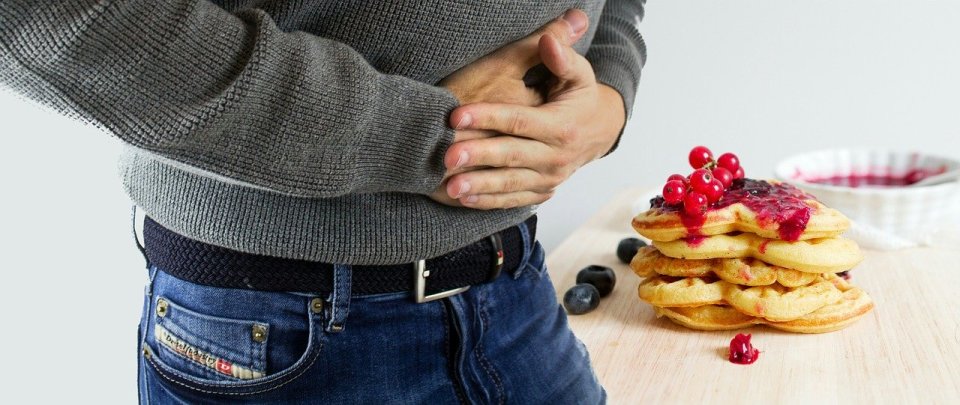
Constipation is not a topic we are usually comfortable talking about, which is why it has been called a "silent epidemic." Worldwide, approximately 12% of people suffer from self-defined constipation; people in the Americas and the Asian Pacific suffer twice as much as their European counterparts. 1
So let's go where only the brave dare to go. Let's have a serious talk about bowel moments.
Though occasional constipation is very common, some people experience chronic constipation that can interfere with their ability to go about their daily tasks.
Chronic constipation is defined as having infrequent bowel movements or difficult passage of stools that persists for several weeks or longer, and generally described as having fewer than three bowel movements a week. 2
As if discomfort and sometimes pain isn't enough reason to take this unpleasant topic very seriously, chronic constipation is associated with a variety of problems that are worse than mere discomfort: hypothyroidism, ischemic colitis, diverticulitis, colorectal and gastric cancer, Parkinson's disease, and may increase your risk of kidney disease and kidney failure.
A short review of digestion
To understand constipation, it is helpful to understand a bit about how digestion works. Here is a Biology 101 overview.
- By the time food leaves your mouth, it's been chewed, and saliva has been mixed in. Along with chewing which mechanically breaks down the food, the enzymes in your saliva are the first chemical step in the process of extracting nutrients. Saliva also helps to lubricate the swallowing process.
- The food you've eaten goes down your esophagus into the stomach where stomach acid and more digestive enzymes continue the work.
After food leaves your stomach, it passes through your small intestine where nutrients are extracted to power your body. - It then passes into your large intestine, or colon, where water is extracted. That water will be re-used to assist in digestion and producing saliva.
- Whatever is left after the nutrients and the water are absorbed is waste product and passed out of your body as stool.
Constipation most commonly occurs in this last step, when waste or stool moves too slowly through the digestive tract and too much water is extracted, causing the stool to become hard and dry.
Avoiding Constipation
The best way to control constipation is through a healthy diet and lifestyle. In general, you want to stay hydrated and consume a good amount of fiber.
DRINK PLENTY OF WATER
When you don't drink enough water, the body gets dehydrated and it grabs some of the water content from your intestines, leaving your stool harder and less flexible. When you drink enough water, your urine is the color of straw. If it's darker than that, drink more. If it's clear, drink less. And remember, foods can be hydrating too. Check out Foods That Hydrate with some delicious recipes.
EAT A HIGH-FIBER DIET
Fiber in your diet helps make your stools bulkier and they push their way through your intestines better. A fiber-rich diet also helps foster healthy gut microbes. Fresh fruit and vegetables are very good for preventing constipation.
Foods You Should Be Eating
FERMENTED VEGETABLES
Fermented veggies contain good bacteria, also known as probiotics which are vital for a healthy gut. Your body loves both the digestive enzymes and the fiber that these foods provide. They are the best and cheapest way to get your daily fill of probiotics. An alternative is to buy a quality probiotic.
PRUNES
Prunes are more than just something you saw your grandparents eating! They are well known and worth mentioning for their mild laxative effect. The laxative effect comes from the prunes' ability to draw water into the intestines, the fruit's high concentration of insoluble fiber, and a compound they contain called dihydro-phenyl isatin which promotes the contraction of the muscles in the intestinal wall which is needed to pass fecal matter.
AVOCADO
This fruit (yes, it’s a fruit) is rich in fiber, potassium, and magnesium. Fiber helps the bowels move, and potassium is a key mineral needed for muscle movement to keep things moving along the digestive tract. When the body gets more magnesium than it needs, it can attract water into the intestines. This can stimulate the bowels and give you the urge to go. There are products such as Calm (containing Magnesium Citrate) that can also help with the process.
FLAX SEEDS & PSYLLIUM
Both of these plant foods are rich in fiber, both soluble and insoluble. Flaxseed is also a good source of plant-based Omega3 essential fatty acids. Sprinkle them on your food or mix in a smoothie.
FIGS
Figs help improve peristalsis, which is the name of the muscle contractions that push food through your digestive tract. They are also high in fiber, almost as much as prunes.
WARM DRINKS
Warm drinks such as tea or warm water with lemon can be helpful when you are constipated. The warm water may help the intestines to contract.
What Else Can You Do To Reduce The Risk Of Constipation?
PHYSICAL ACTIVITY
Moving your body improves your digestive tract's ability to move spontaneously, burning up energy in the process. And that's a good thing. Exercise also stimulates the desire to empty your bowels.
Vigorous physical activity releases stored body fat which your body converts back into blood sugar… which raises your blood sugar level… and that suppresses your appetite cravings.
DON'T WAIT
When stool is stagnant in your colon, water is removed. The longer it sits, the harder the stool gets. So when you feel the urge to go to the toilet for a sit-down session, go! Fighting against that urge can actually train your bowel to be constipated. And there's a price to pay for that.
Foods to Avoid
In general low fiber, high protein foods slow down the transit time (the amount of time it takes food to pass through the digestive tract) and can contribute to constipation.
DAIRY
Cheese and milk, because dairy foods contain no fiber and are high in protein, both factors contribute to constipation.
EGGS
Eggs are low in fiber so eat them in moderation and in conjunction with high-fiber foods such as tomatoes.
FAST FOOD
Takeaway, processed, and readymade foods are low in fiber, not to mention high in sugar and unhealthy fats.
FRIED ANYTHING
Again, unhealthy fat is the problem.
SUGARY FOODS and SWEET DESSERTS
Because of all the sugar they contain, pastries and sweet desserts damage your intestinal tract. Sugary processed foods tend to contain other harmful ingredients such as low fiber and unhealthy fats which contribute to constipation.
WHITE BREAD
White bread is a very processed food and is often low in fiber. Instead, get whole grain bread. Better still, avoid all processed grains such as those found in conventional breads, and opt instead for cooked whole grains (such as steel-cut oatmeal, wild or brown rice, quinoa, or ancient grains.)
RED MEAT
Red meat is high in protein and iron content. Too much dietary iron can make stools go hard. A simple solution for meat lovers is to eat moderate portions (4-6 ounces) of red meat just a few times a week, and balance this with plenty of vegetables and fruit in your diet. Drink plenty of water too.
PHARMACEUTICALS
While not food, pain killers, antidepressants, blood pressure medication, and allergy medicines can cause constipation. Similarly, iron supplements are known to cause constipation. Consult your doctor when taking medications to find out if there are any side effects.
Why It's Best to Avoid Laxatives, Even "Natural" Ones
Knowing how serious constipation can be, you might think that using a laxative would be a good idea if your digestion is a bit stuck. But using laxatives is not a good long term solution because your body can start to rely on them for normal elimination. Your colon can lose some of its ability to contract, making your constipation problem worse.
In addition, they can eventually damage the nerves, muscles, and tissues in your large intestine. Some laxative work by increasing the muscle activity in your intestines, with the result that normal functioning of the intestines slowly fades away. And this is also true of natural laxatives like senna and cassia when regularly used over time. (By the way, a glycerin suppository that contains no stimulants works differently and does not produce those unwanted results.)
I hope you put some of these practices to work if you are suffering from digestive problems. If you have any questions or need support in making healthy changes to your diet, please contact me. I am available for discovery calls throughout the week. You can reach me by email.
If you would like some support moving away from sugary foods, join me for a FREE 10-Day Sugar Cleanse starting in September. You will receive a daily email with helpful tips on how to limit the harmful added sugar in your diet and lifestyle changes that can help. Just send me an email and I will add you to our growing group!
Yours in Health,
Evey
Disclaimer: This publication is for informational purposes only and is not intended as medical advice. Medical advice should always be obtained from a qualified medical professional for any health conditions or symptoms associated with them. Every possible effort has been made in preparing and researching this material. We make no warranties with respect to the accuracy, applicability of its contents, or any omissions.

